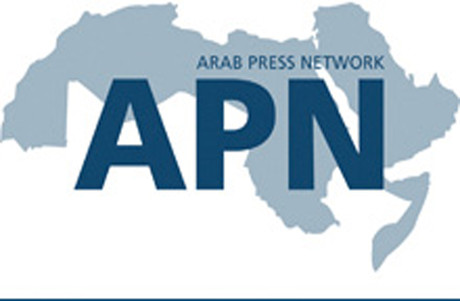On 4 January, two women journalists Sana Farhat and Maha Ouelhezi were physically assaulted by plainclothes police in Tunis as they were covering a demonstration organised by university teachers outside the Ministry of Education. The teachers from Manouba University were protesting the month-long sit-in organised by Salafists campaigning for the right of niqab-clad women students to attend classes at the university. The month-long sit-in was lifted on 6 January with the niqab-wearing women vowing to continue their campaign.
While the prohibition on the hijab, the headscarf, was reversed after the revolution, the niqab, the face veil, remains prohibited in universities and public institutions.
Fatma Jegham, a professor at the Faculty of Fine Arts in Tunis was also assaulted for teaching a subject deemed by them "offensive to God." The professor was also targeted online and labelled immoral and an atheist. This follows a number of attacks by a group of Salafists who previously targeted Nessma TV for screening the film Persepolis and the debate that followed it, which was regarded as offensive.
"The series of attacks at universities and in public spaces remind us of the dark days of Ben Ali. As the Tunisian government takes strides towards consolidating democracy and open government, we urge them to exert efforts at also implementing their promises," said IFEX-TMG Chair Virginie Jouan, representing the World Association of Newspapers and News Publishers.
The National Syndicate of Tunisian Journalists (SNJT) organised a demonstration in the Casbah on 9 January to protest the attacks on the journalists, as well as controversial appointments by the government of public media heads.
While fully supporting the recommendation to enshrine freedom of expression in the new Constitution, the IFEX-TMG urges the relevant authorities to take immediate and concrete measures to protect freedom of expression, whether the right to carry out one's job as a journalist or through the right to express oneself freely during peaceful demonstrations.
The IFEX-TMG campaigns to raise awareness of free expression violations in Tunisia and to support independent journalists, writers, and civil society activists in their struggle to end censorship in the country.
IFEX Tunisia Monitoring Group
Virginie Jouan, Chair
on behalf of the World Association of Newspapers and News Publishers (WAN-IFRA)
jouanvirginie@gmail.com
http://www.facebook.com/IFEXTMG
Arabic Network for Human Rights Information
ARTICLE 19
Bahrain Center for Human Rights
Cairo Institute for Human Rights Studies
Canadian Journalists for Free Expression
Cartoonists Rights Network International
Egyptian Organization for Human Rights
Freedom House
Index on Censorship
International Federation of Journalists
International Federation of Library Associations and Institutions
International Press Institute
International Publishers Association
Journaliste en danger
Maharat Foundation (Skills Foundation)
Media Institute of Southern Africa
Norwegian PEN
World Association of Community Radio Broadcasters (AMARC)
World Association of Newspapers and News Publishers
World Press Freedom Committee
Writers in Prison Committee, PEN International
IFEX-TMG concerned by attacks on journalists and academics
IFEX-TMG concerned by attacks on journalists and academics
Article ID:
14446
Despite promises by Tunisia's new government to uphold free expression, the International Freedom of Expression Exchange Tunisia Monitoring Group (IFEX-TMG), a coalition of 21 IFEX members of which WAN-IFRA is an active member, is concerned that not enough is being done to effectively uphold this right in light of recent attacks on journalists and academics.

Tags
Contact information

Alison Meston
Director, Global Campaigns
WAN-IFRA
| Paris,
France
Phone: ++33-147 42 85 06
E-Mail: alison.meston@wan-ifra.org



